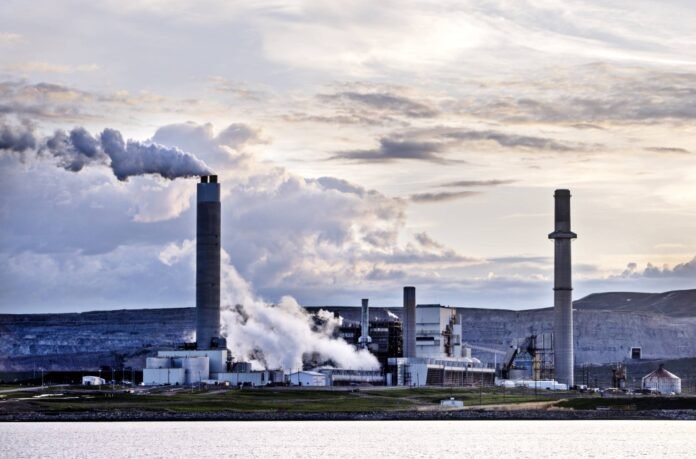The Group of Seven ministers on Tuesday agreed to a timetable for phasing out coal-fired power stations, setting a target of the mid-2030s.
The two-day G7 meeting in Turin was the first major political session since the world pledged to transition away from coal, oil and gas at the UN’s annual climate summit COP28 in Dubai in December.
The G7 has committed to continue phasing out existing coal-fired electricity generation in our energy systems by the first half of 2030, according to the final statement from Energy and Climate Ministers.
However, it left some wiggle room, saying countries could “follow a timeline consistent with keeping a 1.5 degree Celsius temperature rise within reach, in line with countries’ net-zero pathways.”
It also reserved a place for coal power if it was “decommissioned,” meaning its emissions are captured or limited by technology – something considered by many to be unproven and a distraction from reducing fossil fuel use.
The G7 unites Canada, France, Germany, Italy, Japan, Great Britain and the US
Negotiations over a fixed date were reportedly difficult. Some countries, and many environmentalists, had pushed for a 2030 limit, but Japan – which relies heavily on coal – has been reluctant to set a date.
The leaders of the G7 countries will make their own declaration after a summit in southern Italy in June.
In the 2015 Paris Agreement, countries agreed to limit global warming to ‘well below’ 2 degrees Celsius above pre-industrial times – with a safer limit of 1.5 degrees Celsius if possible.
To maintain the 1.5 degrees Celsius limit, the UN’s panel of climate experts has said emissions need to be cut by almost half this decade, but they will continue to rise.
The International Energy Agency (IEA) has said that to reach net-zero emissions by 2050 – a key milestone to limit global warming – advanced economies must end all generation from unabated coal-fired power stations by 2030.
Italian Environment and Energy Security Minister Gilberto Pichetto Fratin said the talks had been “intense” but showed that the G7 “understands” climate change.
Luca Bergamaschi of Italian climate think tank ECCO said the G7 had taken a “decisive step forward” in translating the Dubai treaty into national policy.
The World Resources Institute called the pledge “a beacon of hope for the rest of the world.”
But Oil Change International said the G7 had “failed” their first post-COP28 test, while policy institute Climate Analytics said “2035 is too late”.
“Many of these countries have already publicly committed to phasing out data before 2030, and have only a small amount of coal capacity anyway,” Jane Ellis of Climate Analytics said in a statement.
She also pointed out that it was “notable that gas was not mentioned”, despite it being the largest source of global increases in CO2 emissions over the past decade.
Germany – Europe’s biggest emitter of greenhouse gases – is unwilling to phase out gas, as is G7 host Italy, which is investing in new domestic gas facilities.
G7 ministers did say they will scale up battery storage “more than sixfold” by 2030, to support electricity grids powered by renewable energy sources.
They also tackled the thorny issue of plastic pollution, amid a heated debate over how best to draw up a treaty to tackle the scourge.
Plastic waste is now found everywhere, from the tops of mountains to the ocean floor and in human blood and breast milk.
Broadly speaking, the debate is about whether we should focus on reducing production or encouraging recycling.
Ministers said they were “committed” to reducing and, if necessary, limiting global plastic production, and renewed their commitments to end plastic pollution by 2040.
Climate observers are pushing for more money for climate change adaptation and energy systems for developing countries, and all eyes will be on the G7 finance ministers meeting at the end of May.
Ministers in Turin stressed that efforts to raise money to help poorer countries deal with climate change must include “those countries that are able to do so.”
Under a UN climate treaty signed in 1992, only a small handful of high-income countries that dominated the global economy at the time were required to pay climate finance – with the exception of China, which has since become wealthier and is now the world’s biggest polluter. .
“By making it clear that we have called on other countries to contribute, we want China to join us in this direction,” said Franck Riester, the minister representing France on climate issues.



